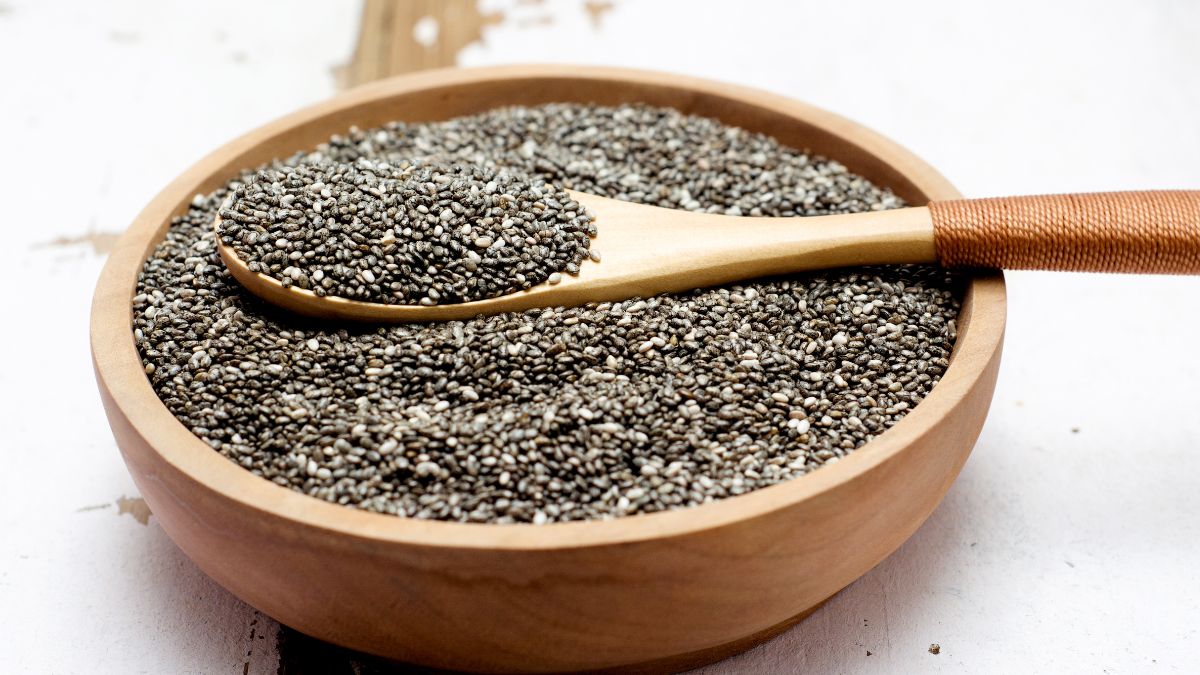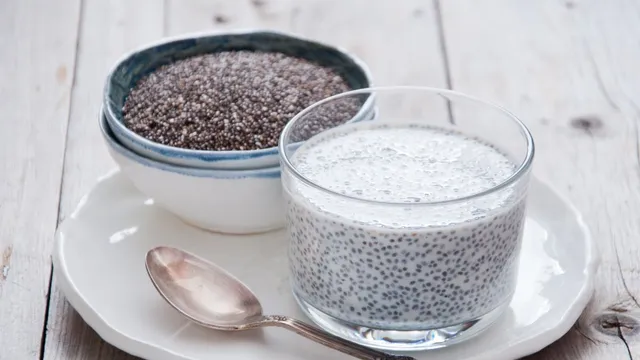- By Iram Hussain
- Mon, 05 May 2025 04:31 PM (IST)
- Source:JND
Chia seeds, a tiny yet potent superfood have garnered significant attention in recent years due to their impressive nutritional profile and numerous health benefits. These minute seeds are packed with fibre, protein, omega-3 fatty acids and essential minerals. Health-conscious individuals swear by chia seeds by incorporating them into their daily routines through various means such as mixing them with water or almond milk, adding them to oatmeal or yogurt and many other ways.
Despite their potential to support heart health, digestion and sustained energy, these chia seeds might not be the right choice for everyone. Yes, you heard it right! There are some types of people who should avoid consuming chia seeds to prevent any health issues. Here, we've listed those people who should not eat chia seeds at any cost.
People Who Should Avoid Chia Seeds
Allergic To Seeds
Those who are allergic to seeds not include chia seeds in their diet. As a type of seed, chia seeds can trigger allergic reactions in sensitive individuals, leading to symptoms such as hives, itching and digestive issues. If you're allergic to seeds, then it's best to explore other alternatives.
Low Blood Pressure
People with low blood pressure should also avoid having chia seeds as they can further lower or reduce blood pressure levels. Chia seeds are rich in alpha-linolenic acid (ALA), a potent omega-3 fatty acid that can cause blood vessels to dilate, leading to decreased blood pressure. This may exacerbate hypotension symptoms.
Medications
Individuals taking certain medications such as blood thinners are also advised to avoid chia seeds. Its high omega-3 fatty acid content can enhance the effects of blood thinners while increasing the risk of bleeding. This interaction can be particularly problematic for those taking anticoagulant medications such as warfarin.

Who should avoid eating chia seeds ( Image Credits: Canva)
Kidney Disease
Those with kidney disease should not eat chia seeds due to their high oxalate content. Oxalates can exacerbate kidney damage and worsen kidney function as the kidneys may struggle to process the excess oxalates. This can lead to further complications and potentially accelerate kidney disease progression.
Hypothyroidism
People with hypothyroidism should exercise caution with chia seeds due to their high phytic acid content. Phytic acid can bind to minerals like zinc, iron and calcium, potentially interfering with thyroid medication absorption. This may worsen hypothyroidism symptoms, making it essential for those with the condition to consult with their healthcare professional.
ALSO READ: 5 Effortless Chia Seeds Recipes For Rapid Weight Loss
ALSO READ: Why Chia Seeds Are Best To Consume In Summer? Know From Nutritionist
Disclaimer: This content, including suggestions and advice, provides generic information only. It is in no way a substitute for qualified medical opinion. Always consult a specialist or your own doctor for more information before making any drastic changes in your lifestyle.

